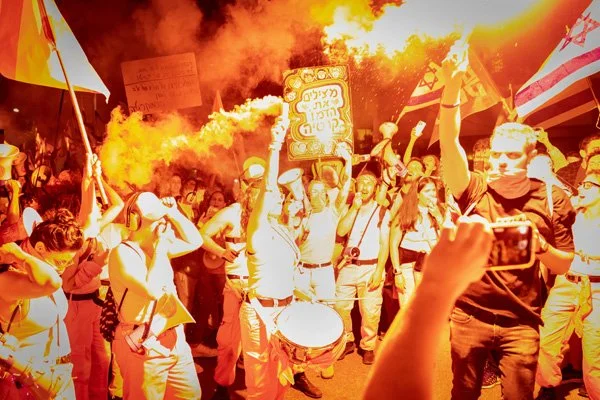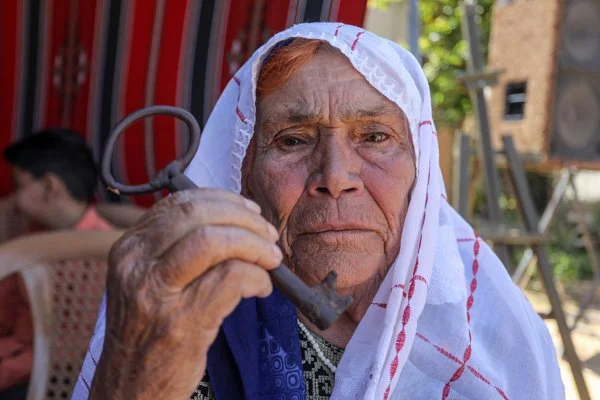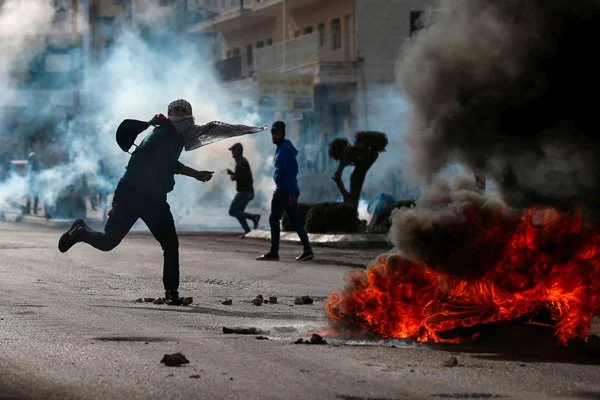Unholy Land
In an apartheid state, peace and inclusion remain elusive.
This May, the 75th anniversary of Israel’s founding was met with another round of fighting. As the Islamic Jihad fired rockets from Gaza, the Israeli military responded with brutal airstrikes. Meanwhile, thousands have been taking to the streets in Israel to oppose the authoritarian moves of Prime Minister Benjamin Netanyahu and his plans to weaken the country’s progressive high court. Two analysts — one Palestinian, one Israeli — offer some context on these events. And they try to imagine the shape of real democracy in a land of much promise and meager hope.
Dahlia Scheindlin, an Israeli political analyst, says it’s time for Israel to face its historical mistreatment and displacement of Palestinians. “There’s no statute of limitations on history,” she argues. Meaning: it’s never too late to change the discourse and educate young Israelis about their responsibility to incorporate Palestinians as full citizens and address the occupation of Gaza and the West Bank. The Palestinian scholar and activist Yousef Munayyer puts the core issue bluntly, asking whether Israel — which lacks a written constitution — will be a democratic state or a Jewish one. As he points out, what Israeli Jews celebrate as the country’s founding is remembered by the descendants of displaced Palestinians as “the Nakba,” or catastrophe.
Heard on the show
We borrowed some clips from Al Jazeera, CNN, PBS Newshour and the U.S. State Department, in our intro. Between segments, you’ll hear a song by Revolution Void: “The Modern Divide,” from the 2004 record Increase the Dosage.










